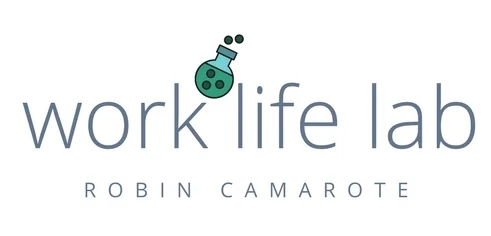A year ago, most white Americans would have put race relations in the important but not really category. Priorities started to shift in recent months for all of the visible reasons playing out in Ferguson, New York, Charleston, and, most recently, Baltimore.
I’ll take a day off from my usual ramblings about management consulting and communication best practices. Posting on anything that might be viewed as pedestrian in light of the local news doesn't feel quite right.
I’m stuck on how to translate something big and out of reach—police abuse and public safety—into something actionable for myself. After watching, reading, and listening for a couple of days, you'd think there are only two sides. This black and white issue is made to seem, well, black and white.
Police abuse is, of course, real and happens in communities that are disproportionately poor and made up of underrepresented groups. Those citizens distrust the police and are frustrated with the chronic inability of society to engage this issue in a meaningful way. At the same time, officers have an impossibly hard job that few of us would do for any amount of money. Police work attracts a unique individual willing to swear under oath to uphold the law to the best of their ability and knowledge without malice or ill-will.
Maybe because two out of my three brothers-in-law are police, I watch the news and think but, but, but… The people we personally know never match the stereotype. This is true of the police, the residents, the kids throwing bottles, the media, everyone. One said brother-in-law works in Baltimore. He spent the last couple of days and nights standing side-by-side in all his gear with his coworkers trying to manage the crowds. I've been wondering what he’s thinking while he stands there. Maybe about his newborn son? Maybe about how young everyone looks? Maybe about his injured colleagues? Maybe about coffee? I don’t have the data to back this up but I believe he drinks more (bad) coffee than any other human.
I’m thinking about how different our days are. Today, I’m worrying about polishing an important PowerPoint presentation. Meanwhile, he’s on the street worrying about when and how this is going to end—both the protests and the much bigger issues of discrimination and injustice. It’s different.
Ignoring issues because of distance is so convenient until they’re at your backdoor. I’m in Virginia and the 40 mile trip up 95 feels closer today than any normal day (even with traffic.) And Baltimore is so familiar. I was just there for a conference and was thinking that my kids haven’t been to the aquarium in a while.
Distance is physical but it’s also conceptual. The big, loud, smoky forces playing out there seem really far away from race issues that come up at the office. Or are they? I don’t know but I’d love to have a conversation about it and don't know where to start. I don’t initiate conversations on race at work partly out of fear of saying the wrong thing and partly out of fear of upsetting what seems like a pretty productive work environment.
Are discussions on race something that should be reserved for the annual diversity initiative refresher course or is there a more important, continuous thread to be explored? I suspect the latter. I love Starbucks' idea to open the door to conversations on race. I wonder how that’s going for them. Has anyone gotten a cup of coffee with Race Together on it? I haven’t but it makes me want to go order a latte (and maybe one for my brother-in-law so he can see what decent coffee tastes like.)
If there is some good that might come of the recent events in Baltimore and other places maybe it’s an opening for a conversation. There are oodles of “how to” guides online. Here’s one. Here's another. If you have the opportunity and take it, I’d love to hear how it goes.
Have you noticed that movies set far into the future cast actors of all different races and it’s NOT a part of the story line? Everyone works seamlessly together to save the planet from rogue asteroids. Though we have a ways to go, race-based injustice feels like something we’re going to eventually outgrow. On days like today, we remember that that future can’t come fast enough.

